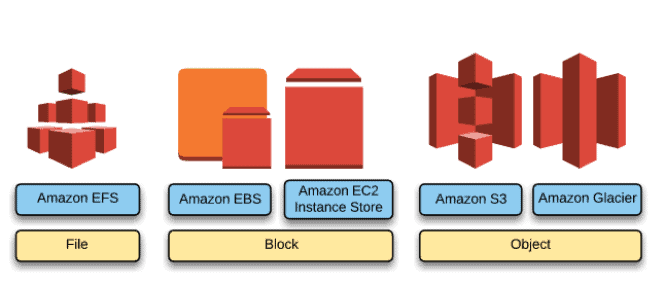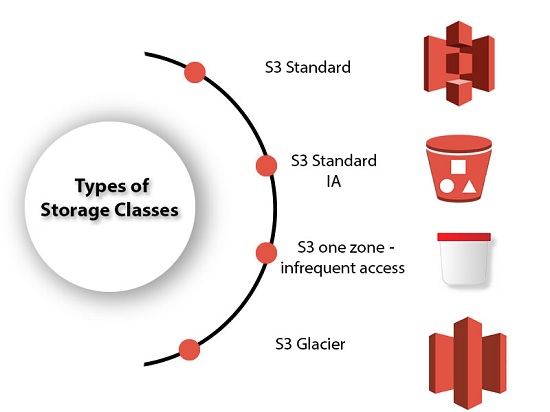Introduction:
In today's data-driven world, effective storage and management of digital assets are critical for businesses of all sizes. Amazon Web Services (AWS) offers a comprehensive suite of storage services that empower organizations to securely store, access, and analyze their data at scale. In this blog post, we will explore the various AWS storage solutions and delve into their features and benefits.

- Amazon Simple Storage Service (S3):
Amazon S3 is one of the most popular and widely used object storage services in the world. It provides secure, durable, and highly scalable storage for a variety of use cases, including backup and restore, data archiving, content distribution, and data lakes. Key features of S3 include:
Durability and Availability: S3 automatically replicates data across multiple geographically diverse Availability Zones, ensuring 99.999999999% durability and 99.99% availability.
Scalability: S3 can seamlessly scale to store virtually limitless amounts of data, accommodating the needs of growing businesses.
Security: S3 offers multiple layers of security, including encryption at rest and in transit, access control policies, and integration with AWS Identity and Access Management (IAM).

- Amazon Elastic Block Store (EBS):
Amazon EBS provides persistent block-level storage volumes for use with EC2 instances. It offers consistent low-latency performance and is suitable for a wide range of workloads, such as databases, enterprise applications, and analytics. Notable features of EBS include:
Performance and Resilience: EBS volumes are designed to deliver low-latency and high-throughput performance while ensuring data durability.
Snapshot and Replication: EBS snapshots enable point-in-time backups and facilitate replication of data across different regions for disaster recovery purposes.
Flexibility: With EBS, you can dynamically adjust volume size, change volume types, and optimize performance to meet changing application requirements.
- Amazon Glacier:
Amazon Glacier is a secure and cost-effective cloud storage service designed for long-term data archiving and backup. It is optimized for infrequently accessed data and offers three retrieval options to balance cost and access time. Key features of Glacier include:
Cost-effectiveness: Glacier provides significantly lower storage costs compared to other AWS storage services, making it an ideal choice for long-term data retention.
Security and Compliance: Glacier offers features like data encryption, access controls, and compliance with various regulatory standards to ensure data protection and regulatory compliance.
Lifecycle Management: Glacier integrates with S3 lifecycle policies, allowing you to automate the movement of data between different storage tiers based on predefined rules.
- Amazon Elastic File System (EFS):
Amazon EFS provides a fully managed, scalable, and shared file storage service that can be easily mounted to multiple EC2 instances simultaneously. It is suitable for a wide range of use cases, including content management, web serving, and data analytics. Noteworthy features of EFS include:
Scalability and Performance: EFS automatically scales storage capacity as per demand and provides low-latency and high-throughput performance for concurrent access.
File System Data Durability: EFS stores data redundantly across multiple Availability Zones to protect against data loss.
Integration and Compatibility: EFS supports a wide range of applications, operating systems, and AWS services, ensuring seamless integration with existing workflows.

Conclusion:
AWS storage services provide a powerful suite of solutions to address diverse storage requirements, ranging from object storage to block storage, file storage, and data archiving. Leveraging AWS storage offerings, businesses can achieve scalability, durability, security, and cost-effectiveness for their data management needs. Whether it's storing critical business data, building data lakes, or archiving sensitive information, AWS storage services offer the flexibility and reliability required to handle modern data challenges.
By utilizing AWS storage solutions, organizations can focus on leveraging their data assets for insights, innovation, and business growth, while leaving the complexities of storage management to a trusted and scalable cloud platform like AWS.
